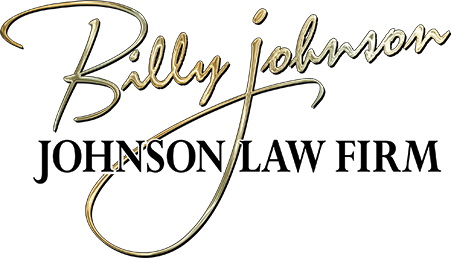Insurance Bad Faith
Insurance is one of life’s necessary evils
While it can offer many important benefits, the difficulties in actually receiving compensation for a claim can sometimes make it seem as if insurance just isn’t worth the trouble. Thing is, you can’t really get through life without having to secure some kind of insurance coverage. You have to have automobile insurance to drive a motor vehicle, health insurance under the Affordable Care Act, and homeowner’s insurance in order to buy a house. You may even choose to buy life insurance to help your family in the event of your death, disability insurance in case you cannot work for a period of time, or renter’s insurance if you are a tenant.
Insurance companies work by calculating how much is fair to charge for taking the particular financial risk on your behalf. All policyholders pay these “premiums” and, by doing so, are entering into a contract where their money is exchanged for the insurance agency’s promise to pay for specific losses. Any time an insured person or business makes a claim that falls within the terms of the policy, it should be paid out from the pool of funds. Of course, denying claims means that the insurers get to keep more money so they may not be especially helpful when a claim is made.
However, every insurance policy includes a stated or implied “covenant of good faith and fair dealing,” which means that both parties must act fairly, with good faith, when dealing with matters that arise under the contract. Common ways that insurance carriers breach the contract and act in bad faith include:
- Misrepresenting facts pertinent to a claim or pertinent language in a policy
- Denying a claim that they know is legitimate
- Failing to respond to a claim in a timely manner
- Failing to thoroughly investigate the facts and evidence supporting a claim
- Unjustifiably offering less than what is due under the policy
- Refusing or delaying payment without explanation
- Requiring unreasonable actions or documentation by the insured
- Unjustly cancelling a policy.
If you have been paying your premiums on time, then you are abiding by your end of the contract and the insurance company has a good faith duty to stick to the terms of the policy that require it to pay out when you file a valid claim. Whenever an insurer fails to meet its end of the bargain, a cause of action can be brought against it for breaching its duty to act in good faith toward its insured in settlement of a claim. Unfortunately, instances of insurance companies putting their own interests before those of a policyholder by engaging in deceptive or unfair practices are more common than you might think. Consumer complaints submitted to the states’ insurance regulators average more than one million every year.
There are two types of bad faith claims. If an insurance company refuses to pay a claim on a policy purchased by a person, it is considered a first-party bad faith claim. If an insurance company refuses to pay a claim to a person who has been injured by the company’s policyholder, where the policyholder’s liability is reasonably clear, it is considered a third-party bad faith claim. When someone is injured due to another person’s negligence, it is the responsibility of the negligent party’s insurer to cover the cost of the injuries.
KY insurance claim denial lawyer Billy Johnson believes that those who cause harm to others should be held accountable for their actions. This includes taking on big businesses when their bad faith or deceit damages someone. Based in Pikeville, Billy has made it his life’s work to help people throughout Kentucky, and he is passionate about helping those who have been victims of insurance bad faith. He takes on the insurance companies so that you don’t have to, making every effort to maximize your compensation along the way. He can also help find an independent appraiser to rebut valuations that appear to be unfair.
 He is a proven advocate with over 15 years of experience who has handled litigation in the United States Court of Appeals, the United States District Court for the Eastern District of Kentucky, the United States District Court for the Western District of Kentucky, and the United States Bankruptcy Court. You can rely on his experience with the legal system and his commitment to his clients to help you get the best result possible given the circumstances of your case. If you wish to learn more about how the Pike County insurance bad faith lawyers of the Johnson Law Firm can be of assistance to you, we encourage you to get started today with a free, no-obligation case review by calling 606-437-4488 or filling out this online form to discuss your rights.
He is a proven advocate with over 15 years of experience who has handled litigation in the United States Court of Appeals, the United States District Court for the Eastern District of Kentucky, the United States District Court for the Western District of Kentucky, and the United States Bankruptcy Court. You can rely on his experience with the legal system and his commitment to his clients to help you get the best result possible given the circumstances of your case. If you wish to learn more about how the Pike County insurance bad faith lawyers of the Johnson Law Firm can be of assistance to you, we encourage you to get started today with a free, no-obligation case review by calling 606-437-4488 or filling out this online form to discuss your rights.



 William “Billy” Johnson grew up in the Dorton area of Pike County, Kentucky, and early on decided to stay in the beautiful Appalachian mountains. Like many others in Eastern Kentucky, Billy’s dad worked as a coal miner, a hard job but one that taught his son how to meet challenges head on and persevere. Attorney Billy Johnson has years of experience helping injured clients with claims such as car, truck, and motorcycle accidents, wrongful deaths, work injuries, and more. [
William “Billy” Johnson grew up in the Dorton area of Pike County, Kentucky, and early on decided to stay in the beautiful Appalachian mountains. Like many others in Eastern Kentucky, Billy’s dad worked as a coal miner, a hard job but one that taught his son how to meet challenges head on and persevere. Attorney Billy Johnson has years of experience helping injured clients with claims such as car, truck, and motorcycle accidents, wrongful deaths, work injuries, and more. [ 



